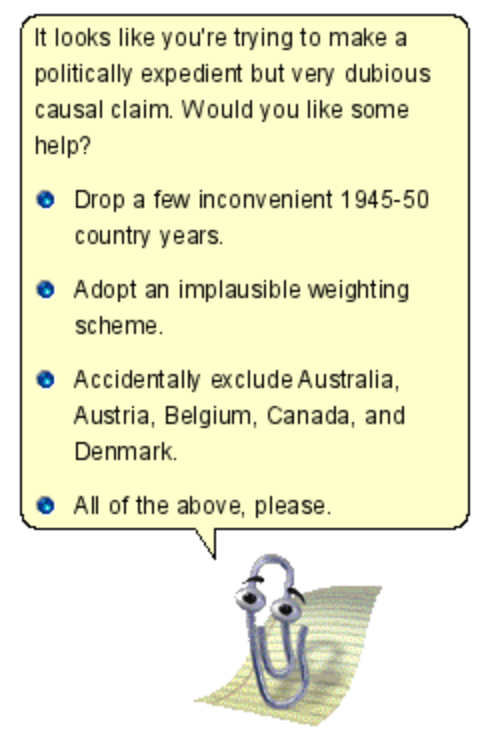Pope Francis’s new Apostolic Exhortation, [Evangelii Gaudium](http://www.vatican.va/holy_father/francesco/apost_exhortations/documents/papa-francesco_esortazione-ap_20131124_evangelii-gaudium_en.html), has been getting some attention today, mostly thanks to its reiteration of some long-standing Catholic doctrine on social justice and the market. So, here is a quiz to see whether you can distinguish statements by Pope Francis from statements by Karl Marx. I figured someone was likely to do this anyway, so why not be first to the market? It’s fair to say that the Pope and Karl Marx differ significantly on numerous points of theory as well as on what people asking questions at job talks refer to as the policy implications of their views. So I don’t think this quiz is very hard. At the same time, I sort of hope it will be picked up, stripped of this introductory paragraph, and circulated as evidence that the Pope and Marx agree on pretty much everything.
### Questions!
> *1.* In a similar way, by raising dreams of an inexhaustible market and by fostering false speculations, the present treaty may prepare a new crisis at the very moment when the market of the world is but slowly recovering from the recent universal shock.
> *2.* … society needs to be cured of a sickness which is weakening and frustrating it, and which can only lead to new crises.
> *3.* In this play of forces, poverty senses a beneficent power more humane than human power. The arbitrary action of privileged individuals is replaced … Just as it is not fitting for the rich to lay claim to alms distributed in the street, so it is also in regard to these alms of nature.
> *4.* Yet we desire even more than this; our dream soars higher. We are not simply talking about ensuring nourishment or a “dignified sustenance” for all people … for it is through free, creative, participatory and mutually supportive labour that human beings express and enhance the dignity of their lives.
> *5.* … the limitless possibilities for consumption and distraction offered by contemporary society. This leads to a kind of alienation at every level, for a society becomes alienated when its forms of social organization, production and consumption make it more difficult … to establish solidarity between people.
> *6.* Today everything comes under the laws of competition and the survival of the fittest, where the powerful feed upon the powerless. As a consequence, masses of people find themselves excluded and marginalized: without work, without possibilities, without any means of escape.
> *7.* In this system, which tends to devour everything which stands in the way of increased profits, whatever is fragile … is defenseless before the interests of a deified market, which becomes the only rule.
> *8.* Inequality eventually engenders a violence which recourse to arms cannot and never will be able to resolve. … Some simply content themselves with blaming the poor and the poorer countries themselves for their troubles; indulging in unwarranted generalizations, they claim that the solution is an “education” that would tranquilize them, making them tame and harmless.
> *9.* The worldwide crisis affecting finance and the economy lays bare their imbalances and, above all, their lack of real concern for human beings; man is reduced to one of his needs alone: consumption.
> *10.* Solidarity is a spontaneous reaction by those who recognize that the social function of property and the universal destination of goods are realities which come before private property.
[click to continue…]
